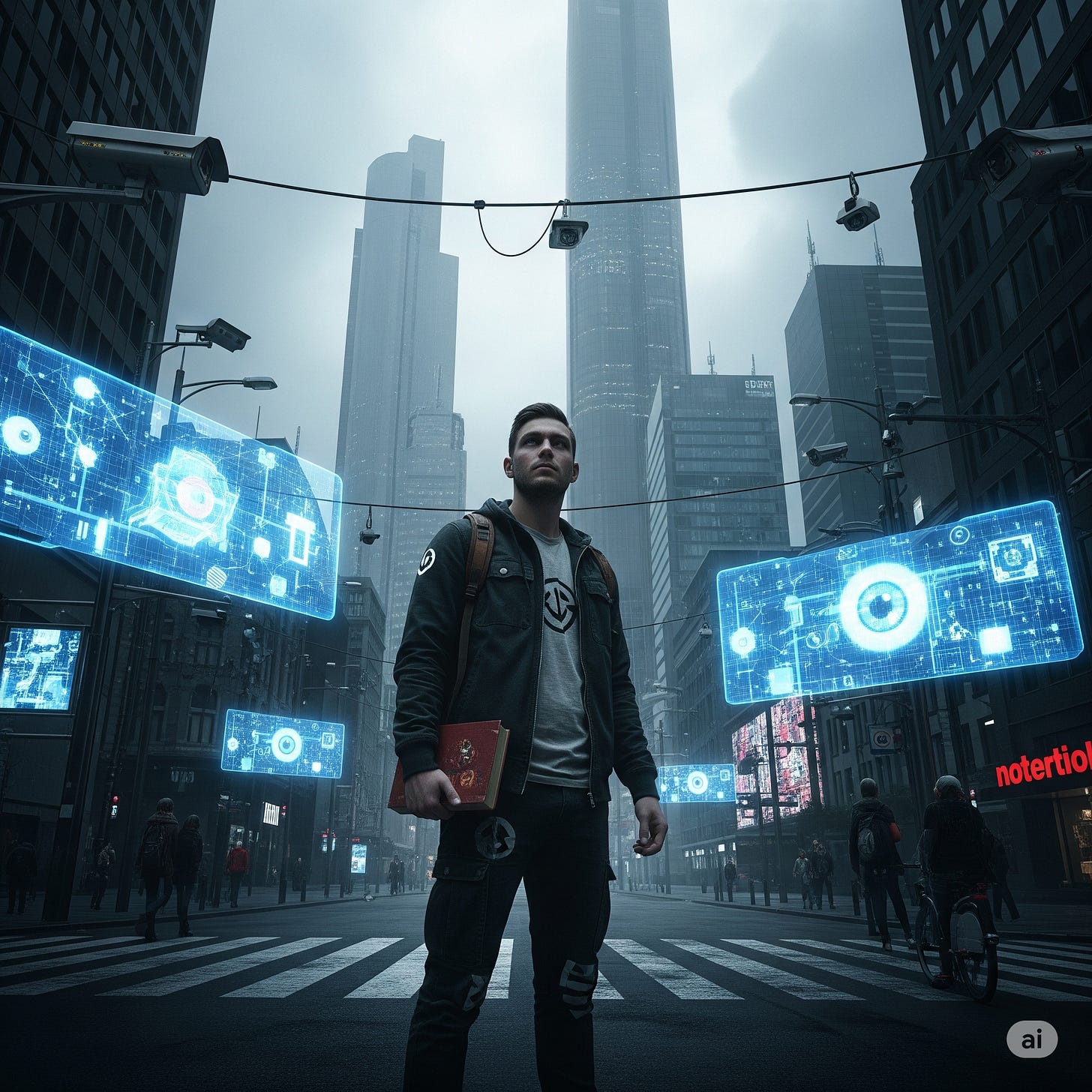The Sovereignty of the Mind: An Antidote to the Unthinking Age
Part II of II
In part one, The Ghost in the Machine: on Orwell and the Art of Looking Away, we left off in a place of disquieting recognition, standing in the long shadow of Orwell’s unheeded warnings. We acknowledged the ghost in the machine, the creeping dystopia that arrived not with a bang, but with a click, a scroll, and the quiet hum of a server farm. The diagnosis is bleak. And it begs a question that is both terrifying and essential: So, what now?
If the societal ship is steering towards the rocks we were told to avoid, is there any recourse but to chronicle the journey downwards? Perhaps not. But perhaps the most potent act of rebellion is not to try and seize the wheel of the ship, but to assert total sovereignty over the one small craft we can truly command: our own mind.
The seduction of the modern age, the force that pulled us into this predicament, was not primarily fear, but comfort. Orwell’s vision was one of control through pain; Aldous Huxley’s, in Brave New World, was of control through pleasure. We have found ourselves in a hybrid reality, a place where we are pacified by endless distraction and, as a result, become more susceptible to control. The echo chamber is comfortable. The algorithm that confirms our biases feels like validation. The frictionless ease of a world tailored to our every preference is a powerful, narcotic lullaby.
To resist, then, is not an act of storming a barricade. It is the quieter, more arduous work of learning to be uncomfortable again. It is to deliberately introduce grit and fiction into our intellectual diet.
The primary antidote, it seems, is the cultivation of a taste for inconvenient truths. This means actively seeking out the intelligent, well-reasoned argument that infuriates you. It means subscribing to the publication you believe to be wrong, not to spot its flaws with a sense of smug satisfaction, but to genuinely understand its perspective. It is an act of intellectual humility, an admission that our own worldview is not an infallible fortress but a work in progress. In an age that rewards unshakeable certainty, the most radical position one can take is to say, ‘I might be wrong.’
From this follows the reclamation of deep reading. The frantic, staccato rhythm of the social media feed is training our minds for impatience. It shatters our ability to follow a complex, nuanced argument from beginning to end. To choose a book—a physical, finite object—is to choose a different mode of being. It is to commit to a single voice, a single sustained thought, for hours on end. This act, more than any other, rebuilds the attention spans that the digital world has systematically dismantled. It is the mental equivalent of leaving the city to go hiking, allowing our senses to recalibrate to a natural pace.
And finally, we must re-learn the art of speaking with precision. Orwell’s great insight in Politics and the English Language was that lazy language makes for lazy thought. We must resist the pull of jargon, the pre-packaged political slogans, the verbal shorthand that signals allegiance to a tribe rather than the articulation of an idea. To insist on clarity, to choose simple, direct words, to say what you actually mean—this is a quiet but profound act of defiance. It cleanses a small corner of the world from the fog of deliberate obfuscation.
None of this is easy. It promises no immediate victory, no satisfying political win. It is the slow, often lonely work of tending to one’s own intellectual garden in an age of concrete. But it is the only work that truly matters, for it is the only ground over which we have genuine control. The system of surveillance and manipulation, whether corporate or political, relies on a populace that has forgotten how to think critically, how to value complexity, or how to sit with an idea that does not offer instant gratification.
The ultimate treason against this unthinking age, then, is to think. It is to defend the sovereignty of your own mind with a quiet, stubborn ferocity. The world may continue its slide, but to preserve a space for deep thought, for nuance, and for intellectual humility is to keep a candle lit. It may not illuminate the whole world, but it is enough to read by. And in the reading, we find the tools for whatever comes next.


